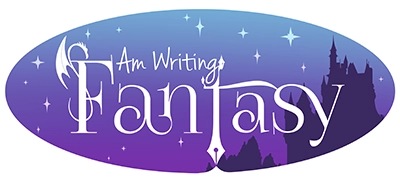You finished your novel and you know the next step is to edit, right? I mean, everyone keeps saying to edit. But what does that mean? You read through it a couple of times, run spell check and any fancy apps you might have to check for commas and such. Then hit publish, right?
No, NO, NO!!
This is a mistake that over half of all first time Indie authors make. And it has given us ALL a bad rap for poorly edited novels. I’d like to think the stereotype is changing… but I’m so wrapped up in writing and editing that I might be missing the complaints.
Editing is a skill, just like writing. But if you haven’t recently taken a writing class that focused on editing, you might not know where to start. I didn’t. It took research, listening to other author’s on how to edit, and then practicing A LOT to figure out some steps that work for me. I had to break the process down into a strategy with a purpose.
So, this post is for all those other first timers, as well as anyone else, struggling with what editing means beyond a few read throughs. Here are 5 ways to edit and when to use them, because you don’t just tackle everything all at once.
What You'll Learn
1. Overall flow, missed plot lines, and content edit.
Editing – when a writer gets their hands dirty!
This is the first read through after you finish that first draft. Some people like to put their work away and let it rest a bit. Not me. I’ve just finished writing the ending, it is fresh in my mind. I’m dying to know if what I just wrote is crap. I flip (scroll) back to page 1 and start reading. But that isn’t all I’m doing.
For this edit, I keep notes on Chapter number (I’ve missed numbers before, especially if things get moved around), POV of chapter (my novels usually have a few POVs), new names (so I can keep the spelling consistent), notes on the main plot lines and events in the chapters (just a few sentences), and finally, what needs work. This last part is where I write things like ‘polish,’ ‘needs tension,’ ‘good,’ and ‘REWRITE!!!’ In one case the note reads: “When did you write this??? It doesn’t even have a chapter number!!” Yeah, problems like THAT.
As I mentioned, I do this right after I finish writing. I know what plot lines made it to the end. Now I can double check they were there in the beginning. And find any ideas that I dropped before reaching the last page (without a resolution).
By the time I’d done with this stage, I have a solid book outline with lots of notes and know where things are weak or disappeared. I usually fix easy spelling mistakes and such, but that isn’t the point of this edit. If I find I used the word ‘picaro’ three times in a paragraph, I just highlight it and move on. This isn’t the editing round to deal with word choice. After all, I may be deleting the sentence/paragraph/chapter where there are problems. I’m just not sure yet.
2. Rewrite, Reorganize
This is the point when I take those notes and head back to the problems. Chapters might need to be moved to make the tension and pacing flow better. Chapters might need to be added! POV might need to be switched. Sections of lost plot lines need to be added: sometimes sentences, sometimes scenes… And those chapters where I marked ‘rewrite,’ well they need to be dealt with. In the end, the writing that remains is what I’m planning on keeping. Cleaning up the whole novel to what, I hope, is the finished organization is the point of this round.
3. Spelling, grammar, and rough edges
Now that I know the sentences in the novel are the ones I’m hoping to keep, its time to clean them up. Run spell check, read it all again, add commas. Does every sentence end with some sort of punctuation (mostly periods). All the dialogue has quotation marks? No extra spaces in front of paragraph beginnings, right? No weird paragraph breaks in the middle of a sentence? I’m assuming you know what a formatted novel should look like. If not, there is a slew of help out there. Make it look pretty and make it technically sound.
4. Word choice
No, you’re not done. Now you should read through the whole thing again out of order and preferably backward (most author’s say they are sick of their novel by the time they are done with edits. I’ve never reached that point, but I am usually VERY much ready to move on to a new project by the time editing is done. Keep this in mind as a standard. If you aren’t sick of it, keep going.).Seriously. This is not a read through. This is not to check for dropped plot lines or incomplete action. You should have caught that all by now. This is an edit to look for those mistakes you’ve breezed over without even seeing it. But you have to fool your mind into SEEING them. I’ve heard people advocate changing the font size to something larger or reading aloud. Use whatever tactic you must, but you want to NOT be reading your novel and getting caught up in all that clever writing. You want to see what you actually wrote.
My tactic is to start at the end and read backward paragraph by paragraph. It is amazing how many flaws are there that I’ve never noticed before. Misspellings, words reused too many times, words that could simply be more outstanding or gripping. They jump out at with this method. Fix them. And yes, I do occasionally find that someone makes an exit without my having written that they walked off screen. It is amazing what you, the author, think is there but that you never clued anyone in on.
5. Send your manuscript to a professional editor
Seriously. You think you got them all. Hah!
My only note here is that expense does not always equal quality, nor does cheapness necessarily equate with poor quality. Look around, shop around, get samples. If they won’t edit a few pages for you for free as a demo, don’t use them. If you don’t have much money, check the Goodreads forum. Search Twitter and Facebook using #editor or #editing. Don’t just google ‘book editors!’
Once you get your novel back, read through the editor’s suggestions. Make more corrections. After that… well, you are on your own. Beta readers are great. Maybe you should let it sit a bit, read again, and then make a few more corrections. Maybe you are ready to publish. Don’t forget final formatting based on the site where you publish!
I do highly recommend sitting back at this point and enjoying the realization that you just wrote a novel. And it’s awesome. 🙂










“Hey, hey,” I said cheerfully, ” I’ve found something that you’ve probably already read, but I just wanted to share it.” I anxiously posted the link, hoping it would be something meaningful.
http://www.writersdigest.com/wp-content/uploads/Point-Of-View.pdf
My Novel reads like a description of people playing a game. It REALLY needs work.